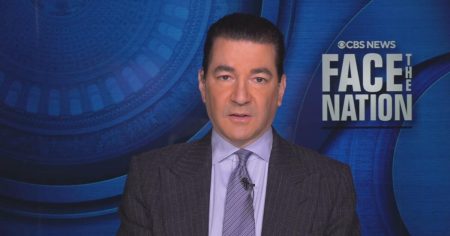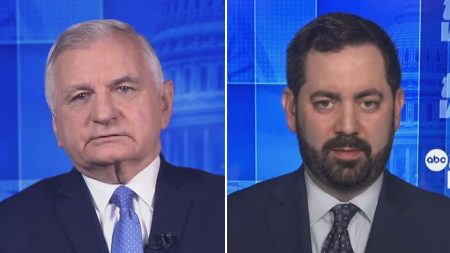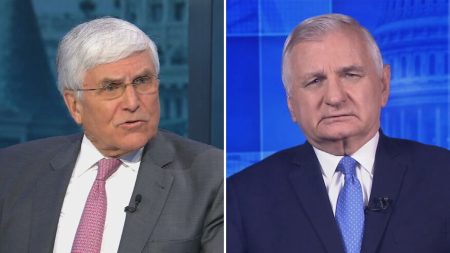Introduction: Rising Tensions Between the U.S. and Ukraine
The relationship between the United States and Ukraine has been a focal point of international attention in recent years, particularly under the presidency of Donald Trump. In a recent interview with ABC News, Senator Jeanne Shaheen, the ranking member of the Foreign Relations Committee, expressed concerns about the mixed messages the U.S. has been sending to Ukraine. These mixed signals, she argued, have created confusion and uncertainty for Ukraine, a nation already grappling with internal political challenges and external pressures, particularly from Russia. Shaheen emphasized the need for clarity and consistency in U.S. foreign policy toward Ukraine, as the absence of a clear strategy could undermine Ukraine’s ability to navigate its complex geopolitical landscape.
The Mixed Messages: A Source of Confusion for Ukraine
Senator Shaheen highlighted that the mixed messages from the U.S. have been a significant issue, particularly under the Trump administration. She pointed out that while the U.S. has provided Ukraine with military aid, which is crucial for its defense against Russian aggression, there have been contradictory statements and actions from various administration officials. For instance, while some officials have expressed strong support for Ukraine’s sovereignty and territorial integrity, others have sent signals that could be interpreted as wavering in that support. This inconsistency, Shaheen argued, has created confusion in Ukraine and potentially emboldened Russia to continue its aggression in the region.
One specific example Shaheen cited was the controversy surrounding Rudy Giuliani, the former mayor of New York and a close ally of President Trump. Giuliani has been at the center of a number of meetings and communications with Ukrainian officials, some of which have been shrouded in secrecy. Shaheen expressed concern that Giuliani’s activities have muddied the waters of U.S.-Ukraine relations, creating the impression that there are unofficial and potentially contradictory channels of communication between the two governments. This, she argued, has undermined the official diplomatic channels and created unnecessary confusion.
The Giuliani Factor: A Complication in U.S.-Ukraine Relations
The role of Rudy Giuliani in U.S.-Ukraine relations has been a particularly contentious issue. While Giuliani has been a vocal supporter of Ukraine in some contexts, his involvement in Ukrainian affairs has also been criticized for being informal and potentially detrimental to the relationship. Shaheen noted that Giuliani’s activities have raised questions about whether he is acting on behalf of the U.S. government or pursuing his own agenda, which could have serious implications for U.S. foreign policy. She emphasized the need for transparency and clarity in the U.S. government’s dealings with Ukraine, particularly at a time when Ukraine is facing numerous challenges.
Shaheen also pointed out that Giuliani’s involvement has been associated with efforts to pressure Ukraine into investigating matters related to U.S. domestic politics, particularly the 2020 presidential election. This, she argued, has created the perception that the U.S. is using its leverage over Ukraine for political gain, which could damage the credibility of U.S. support for Ukraine’s sovereignty and territorial integrity. Shaheen stressed that while U.S. support for Ukraine is crucial, it must be based on shared values and strategic interests, not on partisan political agendas.
The Importance of Security Aid to Ukraine
Another key issue that Shaheen addressed was the provision of security aid to Ukraine. She acknowledged that the U.S. has provided significant military assistance to Ukraine in recent years, which has been crucial for its ability to defend itself against Russian aggression. However, she also noted that the Trump administration has been inconsistent in its approach to providing this aid, with some delays and hesitations that have raised concerns among Ukrainian officials and U.S. allies.
Shaheen emphasized the importance of maintaining a strong and consistent flow of security aid to Ukraine, not only to support its defense capabilities but also to send a clear message to Russia that the international community remains committed to Ukraine’s sovereignty and territorial integrity. She argued that any wavering in U.S. support for Ukraine could embolden Russia to continue its aggressive actions in the region, which would have serious implications for regional stability and global security.
U.S. Credibility on the Line in Ukraine
One of the most significant implications of the mixed messages from the U.S. is the potential damage to U.S. credibility on the world stage. Shaheen argued that if the U.S. is seen as an unreliable partner, it could undermine its ability to lead on international issues and to build alliances with other nations. This is particularly concerning in the context of Ukraine, where the U.S. has played a key role in supporting the country’s efforts to resist Russian aggression and to pursue democratic reforms.
Shaheen also noted that the mixed messages have created challenges for Ukraine’s own government, which has to navigate a complex and volatile geopolitical environment. She emphasized that Ukraine’s leaders need to know that they can rely on the U.S. to provide consistent and meaningful support, both in terms of military aid and diplomatic engagement. Anything less, she argued, could undermine Ukraine’s confidence in the U.S. and create openings for Russia to exploit.
Conclusion: The Need for Clarity and Consistency
In conclusion, Senator Shaheen’s comments highlight the need for clarity and consistency in U.S. foreign policy toward Ukraine. At a time when Ukraine is facing significant challenges, both domestically and internationally, it is more important than ever that the U.S. sends a clear and unambiguous message of support. This means avoiding the mixed messages that have characterized the Trump administration’s approach to Ukraine and ensuring that U.S. actions and statements are aligned with a clear and coherent strategy.
Shaheen also emphasized the importance of maintaining a strong and consistent flow of security aid to Ukraine, as well as ensuring transparency and clarity in U.S. dealings with Ukrainian officials. By doing so, the U.S. can help to bolster Ukraine’s defense capabilities, support its sovereignty and territorial integrity, and send a clear message to Russia that its aggressive actions will not be tolerated.
Ultimately, Shaheen’s comments serve as a reminder of the high stakes involved in U.S.-Ukraine relations and the need for the U.S. to approach this relationship with the clarity, consistency, and transparency that it deserves.















